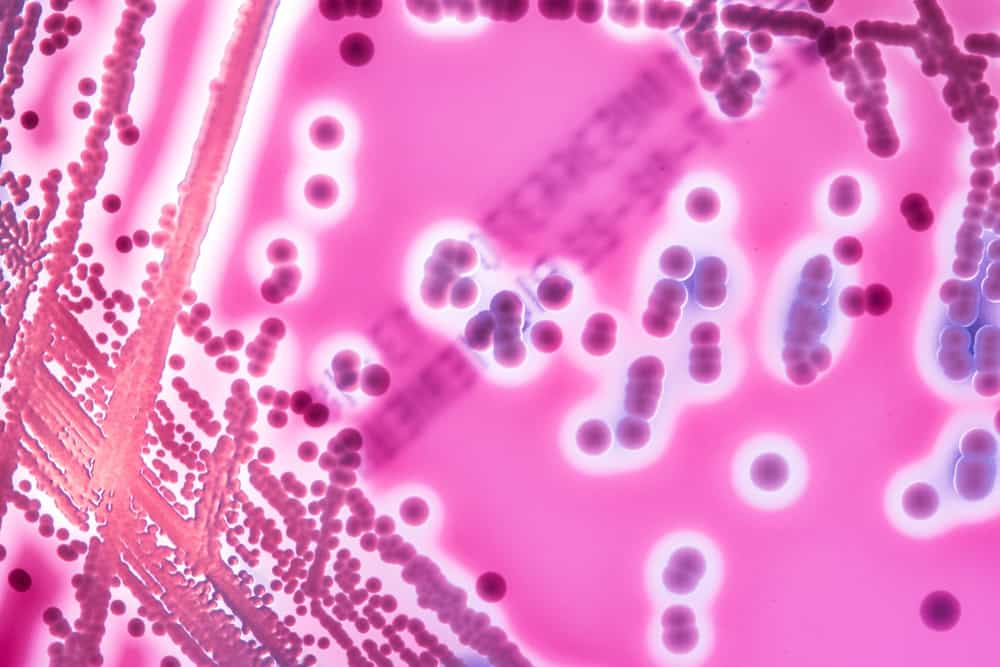Contents:
- Medical Video: What Asthma Looks and Feels Like
- Nocturnal asthma symptoms
- Causes of nocturnal asthma
- Nocturnal asthma diagnosis
- Nocturnal asthma treatment
Medical Video: What Asthma Looks and Feels Like
Nocturnal asthma or commonly known as nighttime asthma, appears when you have asthma symptoms that appear at night during sleep. This can make you feel tired and sleepy all day. Nocturnal asthma can be serious if left unchecked. This will have an impact on your quality of life and make it more difficult for you to control asthma in the morning until noon.
Nocturnal asthma symptoms
Symptoms of nocturnal asthma include:
- Cough
- Wheezing
- Tightness in the chest
- Short breath
Many people just think it's an ordinary asthma symptom that only increases at night. Your body has a different cycle during the day. This cycle works on various bodily functions including body temperature and lung function. Your lung function functions optimally at 4pm, and functions at least 4am.
Your asthma will be controlled during the day, but you may experience coughing, wheezing, chest tightness, or shortness of breath at night. If you experience symptoms of asthma at night, your asthma may be more serious and uncontrolled as you think. Not only can it worsen asthma, nocturnal asthma also affects your sleep, it also indicates poor control of asthma. Some studies have shown that many symptoms of nocturnal asthma are associated with an increased number of patients in the emergency room, need to be treated, and even death from asthma.
Causes of nocturnal asthma
Many reasons why people with asthma will experience asthma symptoms at night. The body's natural cycle plays a role, with some hormones that are at peak (or lowest) times in the morning. Some of these hormones, such as melatonin, increase inflammation in the respiratory tract.
For people with asthma, the highest number of inflammatory cells in the airways is in the morning, with a peak at 4 am. In addition, all people with asthma experience a reduction in lung function at night. In one study, patients with nocturnal asthma were known to experience a reduction in lung function at night by 20% compared to people who did not have asthma which was around 4%.
In addition to contributing to nocturnal asthma, several other causes are:
- Exposure to trigger asthma in beds, such as pet mites or feathers
- Delay in response to asthma triggers during the day
- Sinus and cold problems (mucus flows out of the nose when sleeping)
- Gastroesophageal reflux disease (GERD)
- Bronchospasm caused by decreased body temperature
- Once-a-day asthma treatment taken in the morning
- Sleep apnea, which is a short period of breath inhibition caused by respiratory tract secretions or abnormal brain signals
Nocturnal asthma diagnosis
Measurements made with peak flow meter is to diagnose asthma, including nocturnal asthma.Peak flow meter is a tool that can help treat asthma patients. This tool can compare the severity of narrowing of the respiratory tract or spasm at different times.
Researchers show that around 30-70% of asthma patients anywhere have told their doctors that they wake up at night due to asthma symptoms at least once a month. You can have nocturnal asthma depending on the type of asthma you have - including allergies, non-allergies, work, and exercise that causes asthma.
All sufferers of any type of asthma can get nocturnal asthma if their asthma is not controlled. That is why if you have asthma at night, chances are that your asthma is not properly controlled.
If you wake up more than twice a night because of coughing, wheezing or tightness in the chest, then your asthma is proven uncontrolled and you need to review your asthma treatment plan with your health assistant.
Nocturnal asthma treatment
Nocturnal asthma can really disrupt your night, which can lead to a reduction in function during the day. It is important to identify the cause specifically and find the best treatment.
Avoid allergens
This is the easiest treatment of nocturnal asthma. You can try some of these tips:
- Use a mattress cover and pillow that prevents mites
- Look for anti-allergic pillows
- Don't let animals get into the bedroom (live animals and dolls)
- Use a humidifier to keep air moist.
Change treatment over time
If nocturnal asthma is caused by the treatment of asthma too early, changing the time and dosage of treatment can reduce symptoms at night. For example, using an inhaler once a day during the day rather than using it in the morning can withstand the effects until at night.
In addition, each treatment for asthma has been specifically examined at night. Long-acting beta agonists, such as serevent (salmetrol), are believed to be able to treat symptoms when taken twice a day.
Treatment of stomach acid
There is controversy about the relationship between GERD or gastric acid disease, with nocturnal asthma. There is a connection between reflux from stomach acid to the esophagus and inhibits the respiratory tract. So if you suffer from stomach acid and asthma, ask your doctor about medications that can reduce acid production and good food for gastric reflux.












